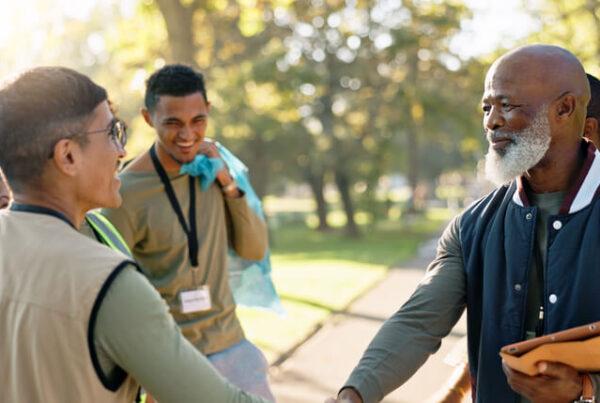Community Service and Addictions Worker Training teaches students a unique combination of qualities and skills. Community Service Workers are employed in a variety of environments, including group homes, mental health agencies, social service centres, shelters, substance abuse centres, schools, and more. They provide support to help their clients move past problems and disruptions in their life. These professionals possess a variety of knowledge, including counselling, communication, ethics, mental health, addictions, sociology, and more.
If you’re considering training to become a Community Service Worker, possessing a few key qualities will enhance your ability to build a long and successful career. The moment when you discover the telltale signs below, you’ll be ready to make an informed decision about your future.
Train online or on-campus for a job that pays more and means more.
Considering a career change?
Consider Community Service and Addictions Worker Training if You’re a Natural Caretaker
After community service and addictions worker training, many of the clients you work with will be struggling with a difficult life situation. Whether they’re a victim of abuse, are suffering from mental health issues, or are grappling with poverty or homelessness, it’s important to approach each new case with care, kindness, and sensitivity. If you’ve been told that you’re a natural caretaker, or are always looking for ways to help those in need, you’ll be a great fit to take on the supportive role of a CSW and help your clients to identify solutions to their problems.

If you’re a natural caretaker, community service programs could be right for you.
You Love Working With People
Would you describe yourself as particularly social? As a CSW, you’ll have the opportunity to put your love of meeting new people to good use, working with a variety of different clients from unique backgrounds and walks of life. Your ability to connect and build a relationship with your clients will enhance your ability to get them the help they need, making strong social skills an asset in this profession.
You’re Patient
If you’ve developed patience as a parent or through another life experience, this is a quality that will translate to success in community service programs and beyond. Patience will help you to take the time to connect with clients who are hesitant to share information with you, or who refuse help when offered it. With patience and persistence, you can slowly establish a relationship with even the most distrustful clients, helping you to guide them throughout your career.
You’re Empathetic
Empathy goes a long way in community service work. CSWs who are quick to judge the clients they work with, or who are unable to face situations with objectivity, won’t be able to effectively determine the best solutions for their clients. Understanding why a client acts the way they do and what circumstances led to their current situation is essential in relating to clients, creating a beneficial relationship, and identifying the forms of support and resources which will help them the most.
You Can Set Boundaries
Self-awareness and self-discipline are both extremely important qualities for CSWs to possess. Due to the emotionally taxing nature of their work and the challenging situations they see on a daily basis, community service workers can be prone to high-stress levels and burnout. In order to ensure a sustainable career, community service workers must be able to set boundaries. This might mean engaging in self-care practices, as well as repeatedly checking in with themselves to make sure they’re coping well. If you’re well versed in setting healthy boundaries, training at AOLCC’s career colleges in Calgary to become a CSW could be your calling.






